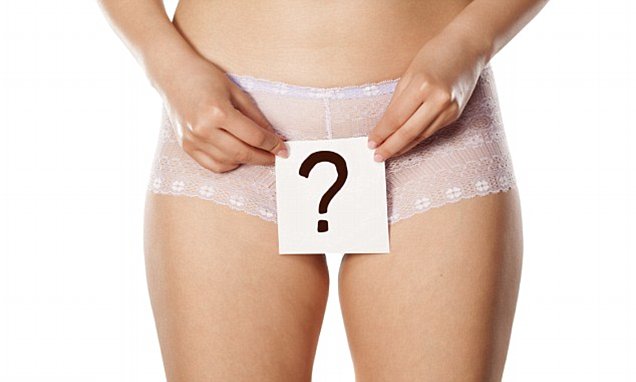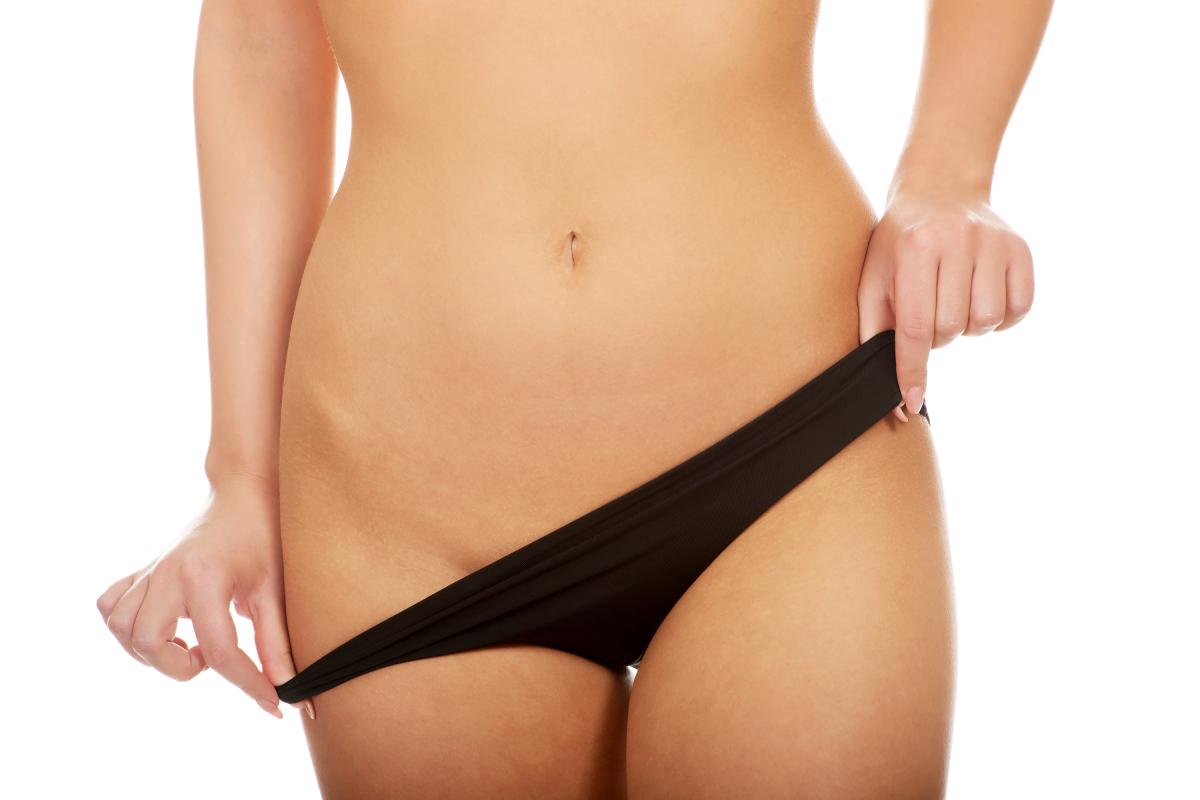Menopause is a big change in a woman’s life, affecting her body in many ways, including her hormones and physical appearance. One area that’s not often talked about is how menopause can affect pubic hair growth. It’s a private topic, but it’s important to discuss openly and honestly.
Many people think that menopause stops pubic hair growth, but that’s not always true. Every woman’s experience is different, and changes in hair growth can vary a lot. In this post, we will clarify these changes, encourage body positivity, and reduce worries. Let’s clear up the myths and celebrate our bodies at every stage of life.

Contents
Does Pubic Hair Stop Growing After Menopause?
Pubic hair growth can slow down or stop altogether after menopause for some women, but it’s not a universal experience. Here’s the breakdown:
-
Hormonal Changes: The main culprit is the shift in hormone levels. During menopause, estrogen and progesterone production decline. This decrease can affect the hair growth cycle, including pubic hair.
-
Slower Growth and Thinning: Often, pubic hair growth slows down after menopause. The hair follicles may shrink, leading to thinner and less noticeable hair.
-
Complete Stoppage: In some cases, pubic hair growth might stop completely. However, this isn’t true for everyone.
-
Other Possibilities: It’s also possible for pubic hair to simply turn gray after menopause, similar to hair on your head.
Why Does Pubic Hair Change After Menopause?
Pubic hair changes after menopause primarily due to significant hormonal shifts in a woman’s body. The decline in estrogen and progesterone, which are central to regulating hair growth and maintenance, plays a major role in these changes. Here’s why pubic hair changes occur after menopause:

1. Hormonal Changes
The most substantial factor behind the changes in pubic hair during menopause is the reduction in estrogen and progesterone levels. These hormones influence the hair growth cycle, promoting growth and helping to maintain the hair’s thickness and health. As these hormone levels drop, hair growth slows, and the hairs may become thinner and sparser.
2. Hair Growth Cycle Alteration
Hair growth goes through three phases: growth (anagen), transition (catagen), and rest (telogen). After menopause, more hair follicles may enter the resting phase sooner, leading to hair thinning and a decreased density of hair follicles. This can make pubic hair appear less full and more sparse.
3. Decrease in Melanin Production
Estrogen also plays a role in melanin production, the pigment that gives hair its color. With lower estrogen levels, there’s less pigment production, leading to graying of pubic hair. This is similar to what happens with the hair on the scalp.
4. Impact of Androgens
While estrogen levels decrease, the impact of androgens (male hormones that all women have in small amounts) becomes more pronounced. This can lead to changes in hair texture, making pubic hair coarser or, conversely, finer in some cases.
5. Nutritional and Health Changes
Menopause can also lead to changes in overall health and nutrition, which can indirectly affect hair health. Reduced nutrient absorption, changes in metabolism, or altered dietary habits can all impact hair growth and quality.
6. Managing Changes
The physiological changes can help manage expectations and guide appropriate responses, whether they involve medical treatments like Hormone Replacement Therapy (HRT) to alleviate severe symptoms or adjusting grooming and care routines to accommodate changes in hair texture and growth.
What Causes Menopausal Pubic Hair Loss?
The culprit behind menopausal pubic hair loss is the hormonal shift that occurs during this stage of life. Here’s a closer look at the hormonal connection:

-
Estrogen and Progesterone: These hormones play a key role in hair growth throughout the body, including pubic hair. During menopause, estrogen and progesterone levels significantly decline. This decrease disrupts the hair growth cycle, causing hair follicles to enter a resting phase for longer periods.
-
Slower Growth and Shrinking Follicles: Due to the hormonal changes, pubic hair growth slows down. Additionally, the hair follicles themselves may shrink, leading to thinner and finer hair. In some cases, the follicles might not produce new hair at all, resulting in patches of baldness.
Can You Regrow Pubic Hair After Menopause?
Regrowing pubic hair after menopause can be challenging due to the hormonal changes that naturally occur during this phase of life. Here are some strategies that may help in managing or potentially regrowing pubic hair after menopause:
Hormone Replacement Therapy (HRT)
For some women, HRT can mitigate the effects of declining estrogen and progesterone levels, which are often responsible for changes in hair growth. By balancing hormone levels, HRT may help maintain hair density and could potentially support new growth. However, HRT is not suitable for everyone and comes with its own risks, so it must be considered carefully in consultation with a healthcare provider.
Nutritional Support
Ensuring a diet rich in essential nutrients can support hair health. Vitamins and minerals like Vitamin D, B vitamins (especially biotin), iron, and zinc are important for hair growth and strength. Sometimes, supplements may be recommended if dietary intake is not sufficient.
Scalp and Hair Care
Though more commonly advised for scalp hair, maintaining gentle care can also apply to pubic hair. Using mild, non-irritating soaps and avoiding harsh treatments or frequent shaving can reduce damage and irritation, potentially allowing hair to grow better.
Managing Underlying Health Issues
Addressing any underlying health issues, such as thyroid disorders, nutritional deficiencies, or chronic stress, can also influence hair growth. Conditions like these can exacerbate hair thinning and loss, so managing them may help improve hair growth.
Lifestyle Adjustments
Improvements in lifestyle—such as reducing stress through meditation or yoga, quitting smoking, and increasing physical activity—can have a positive impact on overall health and, by extension, hair health.
Cosmetic Options
For those looking for immediate solutions, there are cosmetic approaches like hair transplants or the use of pubic hairpieces. These are more extreme solutions and typically considered only in severe cases.
Consultation with Dermatologists or Trichologists
Specialists such as dermatologists or trichologists can offer advice tailored to individual cases. They might suggest topical treatments or other interventions based on the specifics of your hair loss.
Frequently Asked Questions
Does menopause stop pubic hair growth in all women?
No, menopause does not stop pubic hair growth in all women. Experiences vary individually due to hormonal shifts during menopause. Some women may notice a slowdown, thinning or loss in their pubic region, while others may not notice any significant changes.
What causes menopausal pubic hair loss?
Menopausal pubic hair loss can mainly be attributed to hormonal shifts and aging. A decline in estrogen levels, specific to this stage, may lead to thinning or loss of pubic hair.
Can pubic hair regrow after menopause?
Typically, regrowth of pubic hair after menopause is not common. The post-menopausal decline in estrogen and progesterone levels can affect hair growth patterns, often leading to thinning or cessation of pubic hair growth.
Does menopause affect hair growth at other body sites?
Yes, menopause may stimulate hair growth in androgen-sensitive areas even while it may cause a slowdown in pubic hair growth. This can cause variability in how women experience hair growth changes during menopause.
How can women deal with changes in pubic hair growth during menopause?
Acceptance of these natural changes is essential. Women should remember that variations in hair growth patterns are part of the normal aging process and individual experiences with menopause can vary widely.
I am a medical student with experience and interest in Women’s health and well-being.